Educators Attending the Interfaith Leadership Summit Eager for Conversation and Collaboration
August 2, 2022
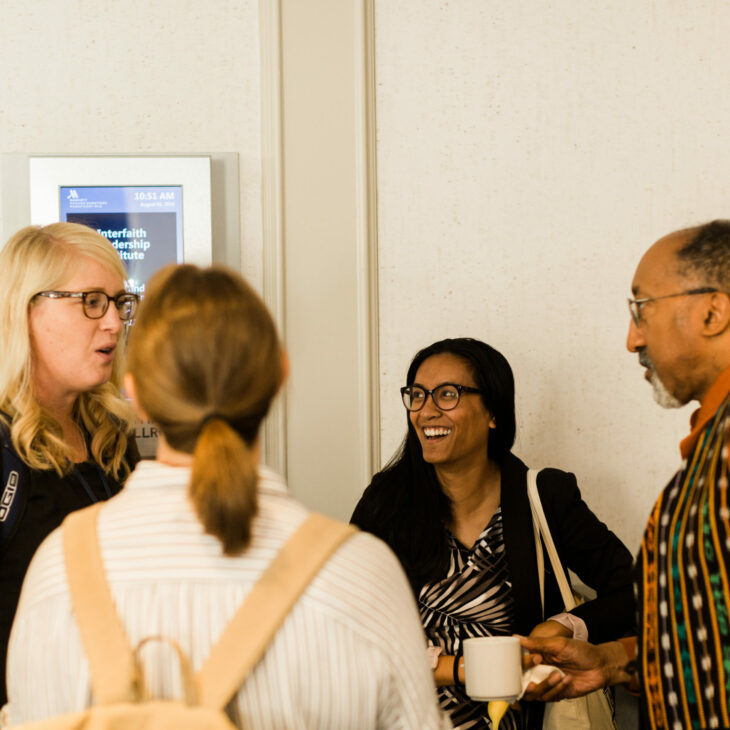
Educators from U.S. undergraduate colleges and universities will be attending Interfaith America’s Interfaith Leadership Summit, taking place in Chicago on August 12-14.
Interfaith America spoke with a few educators who will be coming to the Summit to learn about why interfaith work is important to them and their work in higher education.
A professor of religion, a campus chaplain for Buddhism programs, a coordinator for Jewish life, and a professor of United States history and politics will all join together to share their experiences in religious and interfaith work in their institutions and their aspirations for making important conversations even more valuable.
The following responses have been edited lightly for length and clarity.
Share
Related Articles
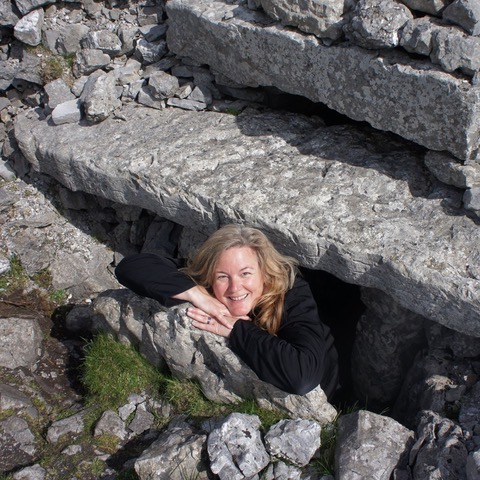
Maeve Callan
Institution: Simpson College (Indianola, Iowa)
Position: Professor/Chair of Religion
Have you attended the Interfaith Leadership Summit in previous years? If so, can you share an experience that has stayed with you?
This will be my fourth year attending the Interfaith Leadership Summit, including the first one at the White House/Georgetown in 2010. The consistent factor has been how transformative and empowering the Summit is for students to develop these skills and the confidence to use them effectively and to build community with so many other students and allies across the country who are similarly invested in this work. I have seen them continue to draw on these skills in their careers.
Why did you decide to sign up for the Interfaith Leadership Summit?
During the pandemic my department lost a lot of ground relating to interfaith engagement. I now have a colleague who shares my deep commitment to interfaith engagement, and we hope to build an even stronger basis for students, faculty/staff, and community partners. She is attending with me, as are four of our students. Sustainability has been a significant concern in the past, so we hope that we can empower these students to develop more of the programming and opportunities that they think will be most meaningful and that will continue to grow each year.
What are you looking forward to about the Summit?
Seeing some old friends and making new ones as we strategize how to take interfaith at Simpson and across our state/region/country/world to the next level, and then continuing to build upon that going forward. I signed up for the track to train trainers to develop interfaith leaders, so that I can better help my colleagues to become leaders in this area as well, and that together we can help our college better embody its mission and institutional commitments. I am also looking forward to the transformative impact on my students, which I have witnessed every time I have attended a Summit. And then I am looking forward to our collaboration afterwards as we put our ideas into action.
What does interfaith look like on your campus?
We had a great event on March 5, 2020, (right before the pandemic shut things down), about diverse religious perspectives on abortion, which was the fifth event we did focusing on religious diversity and politics during a presidential election year, and the room was packed. We have had a few more events and opportunities since then, virtual and in-person, but the students haven’t had the same energy for it. That’s part of why we are focusing on first- and second-year students this year, and we can’t wait to support them in translating their ideas into action and community.
We also have a network of colleagues at other area colleges who are similarly eager to revitalize interfaith on their campuses and we’ll be having a weekend gathering with our students in October. We hope that opportunity to connect with other students in Iowa will help motivate the students attending the summit to think concretely about what they would like to do between August and October and build on that going forward.
Why is interfaith important to you as an educator?
Interfaith is important to me as a person, as a parent, as a citizen, and as a friend, in addition to as an educator. I believe everyone deserves dignity and respect, but too few voices dominate the discussion when it comes to religion. The better we understand and engage with religious diversity, the more fully members of marginalized groups can participate in our community. Religion is incredibly fascinating and profoundly meaningful, and despite claims to the contrary, no one owns the truth. By contemplating diverse approaches to the sacred, our own perspectives are enriched, in areas of divergence as well as commonality. This helps us better understand ourselves and better enables us to embody more of our potential, individually and collectively. And because the future depends on it—at least the kind of future I want to help create and leave for my children and those who come after us. Interfaith engagement is integral to how I honor my own commitments to the divine and creation.
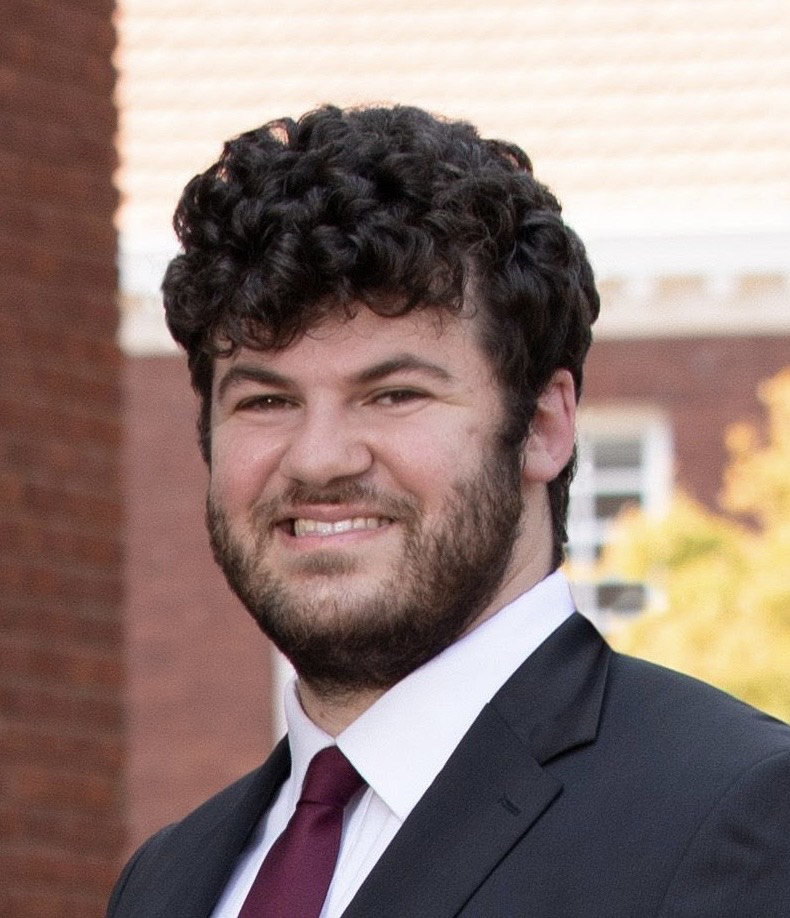
Noah Goldman
Institution: Queens University (Charlotte, North Carolina)
Position: Coordinator of Jewish Life
Religious Affiliation/Worldview: Jewish
Why did you decide to sign up for the Interfaith Leadership Summit?
Queens University has had a strong relationship with Interfaith America for quite some time, and Eboo has visited our campus twice. I unfortunately missed him both times, so I figured the third time’s a charm to finally see and hear him speak. I also wanted to step outside of Charlotte and see what other educators and institutions are doing. While I am the Coordinator of Jewish Life at Queens, interfaith conversations are a huge part of the work I do.
What are you looking forward to about the Summit?
I am looking forward to learning a lot, speaking with educators and students, and experiencing the renowned food scene Chicago has to offer.
What does interfaith look like on your campus?
We have numerous leaders for religious spaces, from chaplains and rabbis to professors and religion coordinators, we have a sizable interfaith staff that is able and willing to have fascinating conversations. Students of any faith tradition are welcome to attend religious gatherings. For example, a few years ago we held an incredibly successful interfaith Passover seder that students of many traditions joined.
What do you hope to learn from the Summit that you can bring back to your campus?
Even within a single religious tradition there are great complexities, so putting these multi-faceted traditions in conversation with one another is challenging. Therefore, I am hoping the Summit will help me and others realize it is okay not to know everything about a religious tradition, but that it is still important —critical, actually— to engage with difference despite not knowing everything.
Why is interfaith important to you as an educator?
Whether we care to admit it or not, religion is everywhere. Religion affects us in every aspect of our lives —from politics to marketing to business. We will always encounter people of difference. Religion and its diversity are already a part of our world, so by making our interfaith interactions more respectful and knowledgeable, we will create a happier and more successful world.
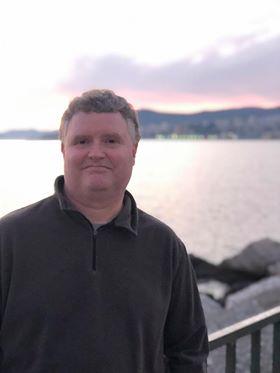
Mark Edwards
Institution: Spring Arbor University (Spring Arbor, Michigan)
Position: Assistant Professor of United States History and Politics
Religious Affiliation/Worldview: Christian
Why did you decide to sign up for the Interfaith Leadership Summit?
Spring Arbor University is one of the centers for the Bridging the Gap program, so attending the Summit in the Bridging the Gap track seemed particularly interesting for me to both learn more about the program and bring new ideas to the University. In addition, I study religious history which involves the study of different religions and interfaith groups, so I felt attending the Summit would contribute to my academic interests the curricula I teach.
What are you looking forward to about the Summit?
Since Spring Arbor can feel like a culturally isolated campus, I think it is important for me to broaden my breadth of knowledge through the Summit so that I can in turn broaden the horizons of my students and illustrate to them the value of worldviews they might not otherwise encounter.
What does interfaith look like on your campus?
There is more intercultural rather than interfaith happening at Spring Arbor, and there are no institutional mechanisms in place for helping students learn about different religious traditions. It can be very hit or miss whether or not students gain a knowledge of religious diversity.
What do you hope to learn from the Summit that you can bring back to your campus?
Because of Spring Arbor’s somewhat culturally isolated nature, I hope that I will have the opportunity to talk with and learn from other educators about effective methods for having interfaith conversations and incorporating interfaith curriculum into the core program at Spring Arbor. I am eager to gain a sense of what other schools and instructors are doing and how I can apply those lessons to my own teaching.
Why is interfaith important to you as an educator?
As a professor of American politics and history, I believe in promoting responsible citizenship. And I believe that responsible citizenship is practiced and achieved through interfaith work, which requires an understanding of the United States’ relationship with religion in both the past and present. My aim is to help students understand the society and government of the United States and the role religion plays within our country.
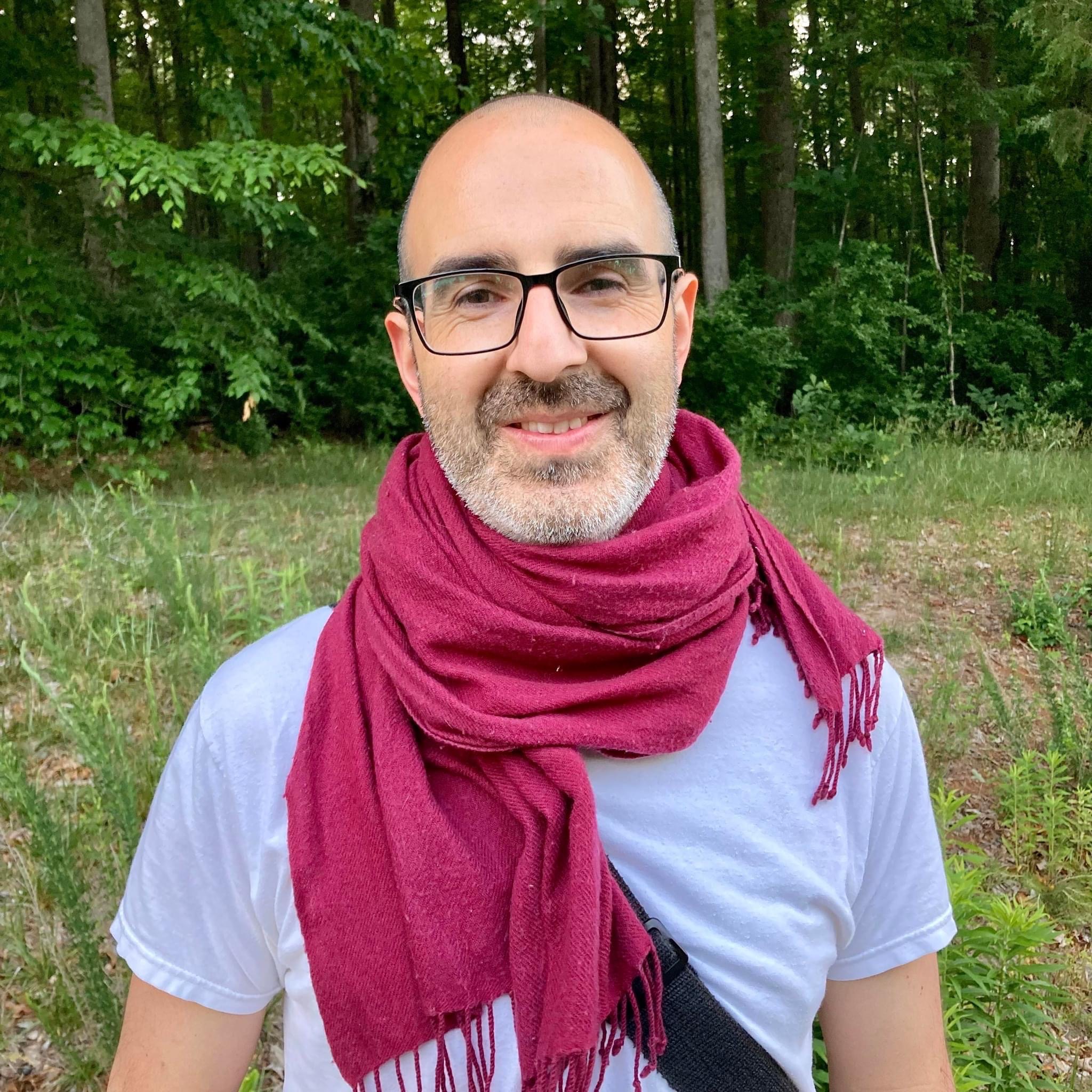
Ivan Mayerhofer
Institution: Davidson College (Davidson, North Carolina)
Position: Associate Chaplain for Buddhist Programs, Director of Davidson Meditation Initiative, and Coordinator of Interfaith Programs
Religious Affiliation/Worldview: Ordained Lay Dharma and Meditation Teacher in a Korean Seon Lineage
Have you attended the Interfaith Leadership Summit in previous years? If so, can you share an experience that has stayed with you?
I attended the virtual Interfaith Leadership Summit in 2021. While the event was held online, I found that everyone was eager to connect with one another. The virtual platform allowed participants to move between rooms and talk with each other easily, which made the online format feel quite organic. I also appreciated learning about new ways to ask questions related to interfaith work. For example, rather than asking what someone’s faith tradition is, we should instead ask what someone’s faith tradition leads them to do and how their faith shows up in the world.
Why did you decide to sign up for the Interfaith Leadership Summit?
When I signed up last year, I was new to my chaplaincy role at Davidson, so curiosity and a knowledge that interfaith work is an important part of my field led me to join the Summit. This year, I am a BILI (Building Interfaith Leadership Initiative) mentor, and as a mentor of this program, I felt being a part of this main interfaith event would be a significant contributor to the work I do.
What are you looking forward to about the Summit?
First, I greatly appreciated how smoothly the virtual format of the Summit ran last year, but I am especially looking forward to being in-person in a space with others who are interested in this work and having conversations about interfaith. Second, I am excited to build camaraderie with fellow educators as well as the three students coming with me from Davidson. Third, I am eager to learn about Bridging the Gap and what my institution and I can be doing to promote and support interfaith work on our campus.
What does interfaith look like on your campus?
Interfaith has many faces on Davidson’s campus. We hold a monthly religious and spiritual life council, which brings together a member of each of the campus religious student groups to check in with one another and coordinate work between the chaplains’ office and students. Students share what they are noticing on campus and how we can work together to create a respectful interfaith campus.
What do you hope to learn from the Summit that you can bring back to your campus?
I am hoping to learn from the facilitators in the Bridging the Gap training sessions, as well as hearing from other educators and students about the challenges they have faced and the successes they have found in their own interfaith work.
Why is interfaith important to you as an educator?
At this moment in our history, there are deep, existential threats looming. We are faced with a crisis of meaning and purpose and value. We must utilize interfaith resources if we are going to face these crises.
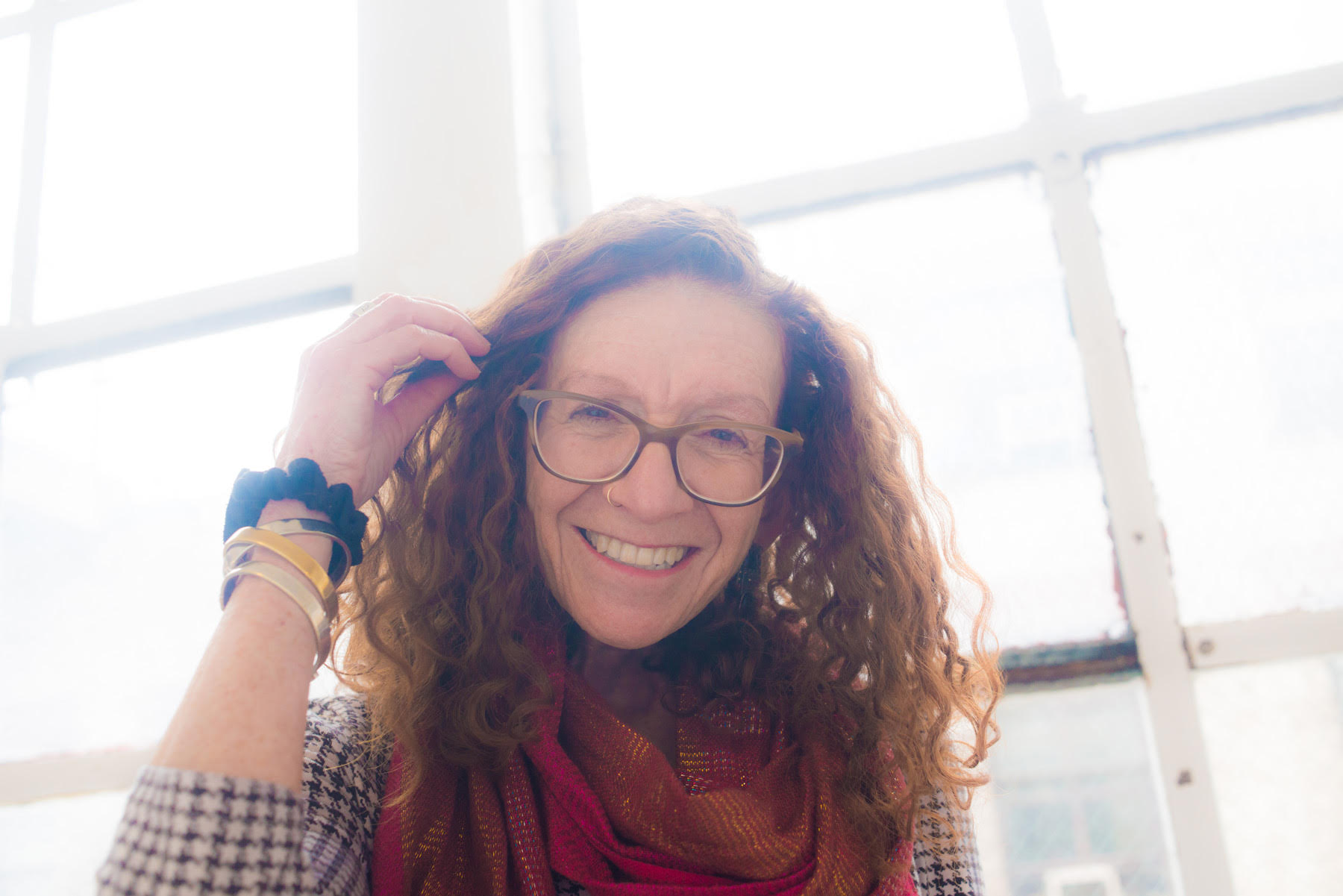
Rabbi Sara Zacharia
Institution: Queens College Hillel
Position: Senior Jewish Educator and Campus Rabbi
Religious Affiliation/Worldview: Jewish
Why did you decide to sign up for the Interfaith Leadership Summit?
Since 2019, Queens College Hillel has been involved with Interfaith America since we began to develop the Interfaith Fellowship on my campus. As a member of Interfaith America’s campus clergy cohort, I was invited to attend and am bringing four of my interfaith fellows to attend and participate as well.
What are you looking forward to about the Summit?
I am looking forward to meeting like-minded campus clergy and educators doing interfaith work on campus. I am excited to learn and expand my own understanding of interfaith on campus, especially during this most challenging time.
What does interfaith look like on your campus?
Queens College is the most diverse college campus in America; I believe over s are spoken. Many of our students are first-generation immigrants to attend college. For the past several years, interfaith work has focused on learning about this diversity and creating programs that have allyship at the heart. Interfaith prior to COVID-19 also included the campus clergy who offered co-facilitated and partnership programs that focused on holiday rituals and text study. We are finally coming back full time to campus this fall, with challenges yet to be identified. I know that we will be working on all anti-hate, be it antisemitism, racism, or any other marginalized community.
What do you hope to learn from the Summit that you can bring back to your campus?
I am hoping to learn from other clergy and educators doing the same work on their campus and to share best practices to strengthen and expand my own toolbox. Having a community in our work is essential for not feeling alone and isolated in challenging times. I am looking forward to learning from the expertise in the field of interfaith work in America on and off higher education institutions.
Why is interfaith important to you as an educator?
Interfaith work is important since sharing religious, cultural, racial, and ethnic understanding is essential in creating a diverse and sacred community. The more we understand each other and share our stories, the more we are able to stand with each other to face the challenges we often confront and to honor differences and find shared values to work together for the better good. To listen with empathy and compassion. And to be a role model for the students with whom I encounter and work through my role as an interfaith leader. Doing work with students is the heart of my interfaith work on campus.
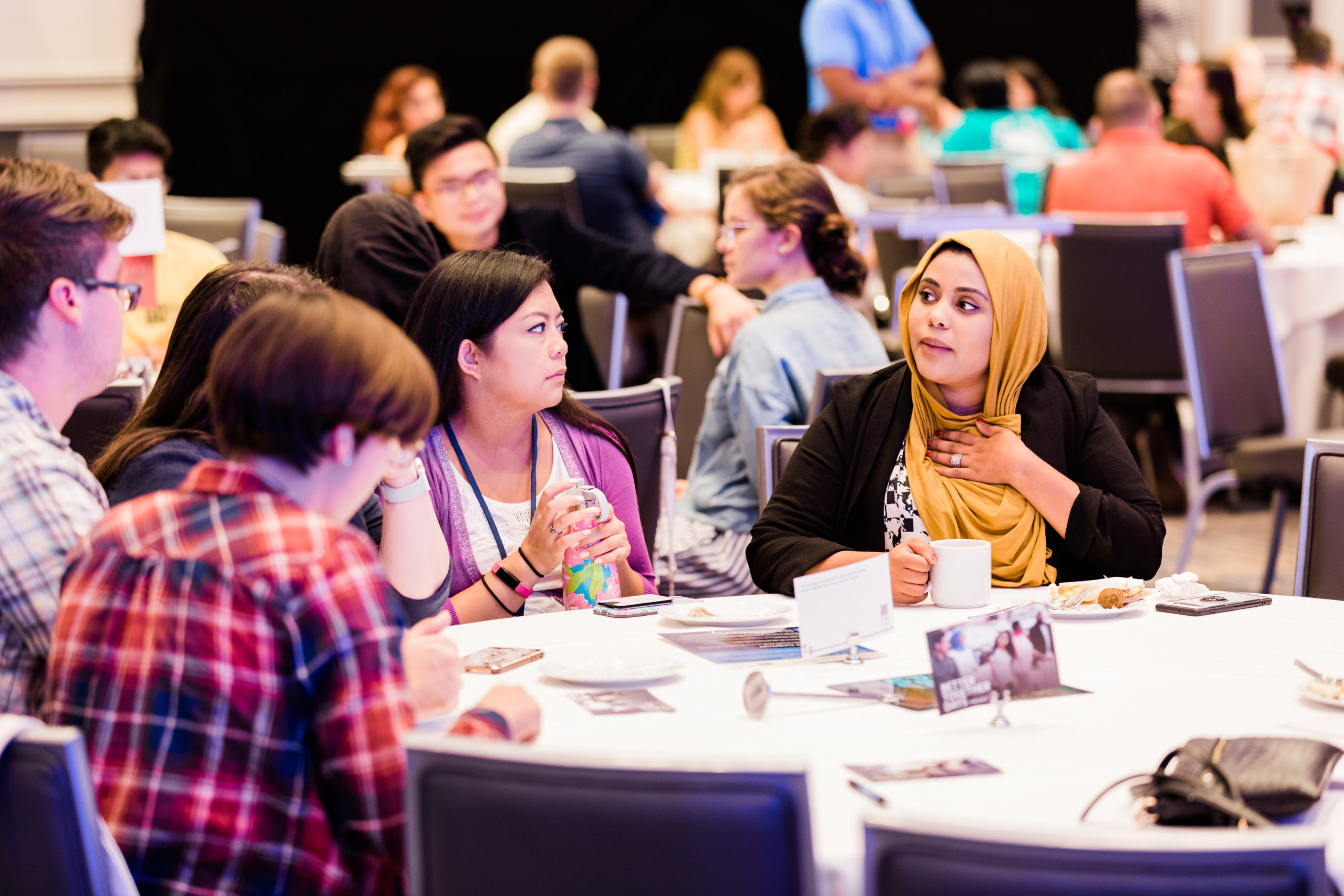
INTERFAITH LEADERSHIP SUMMIT
Register for Virtual Attendance
Come to the Summit with the passion to bring people together and leave equipped with the knowledge and skills to make it happen.
Register


